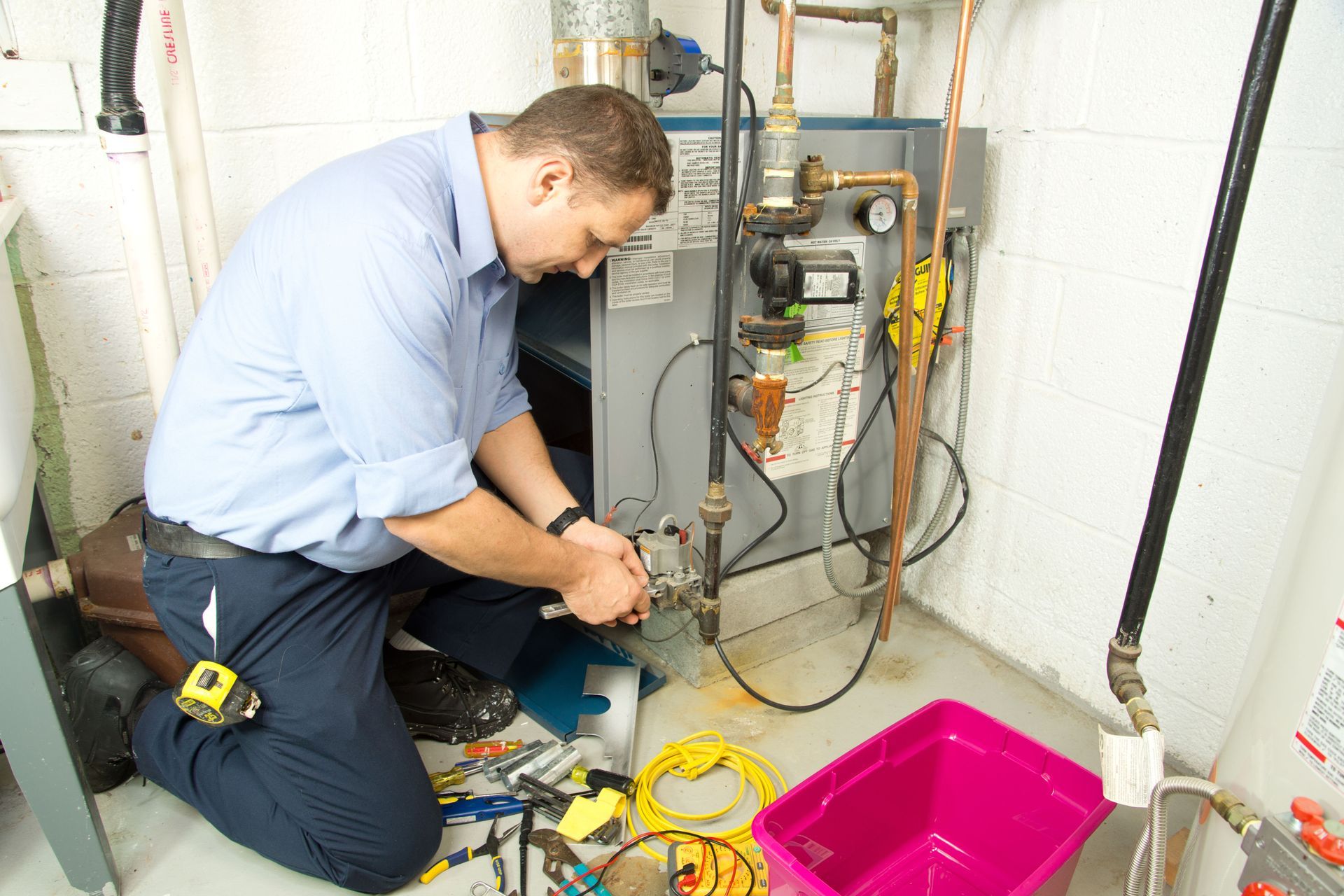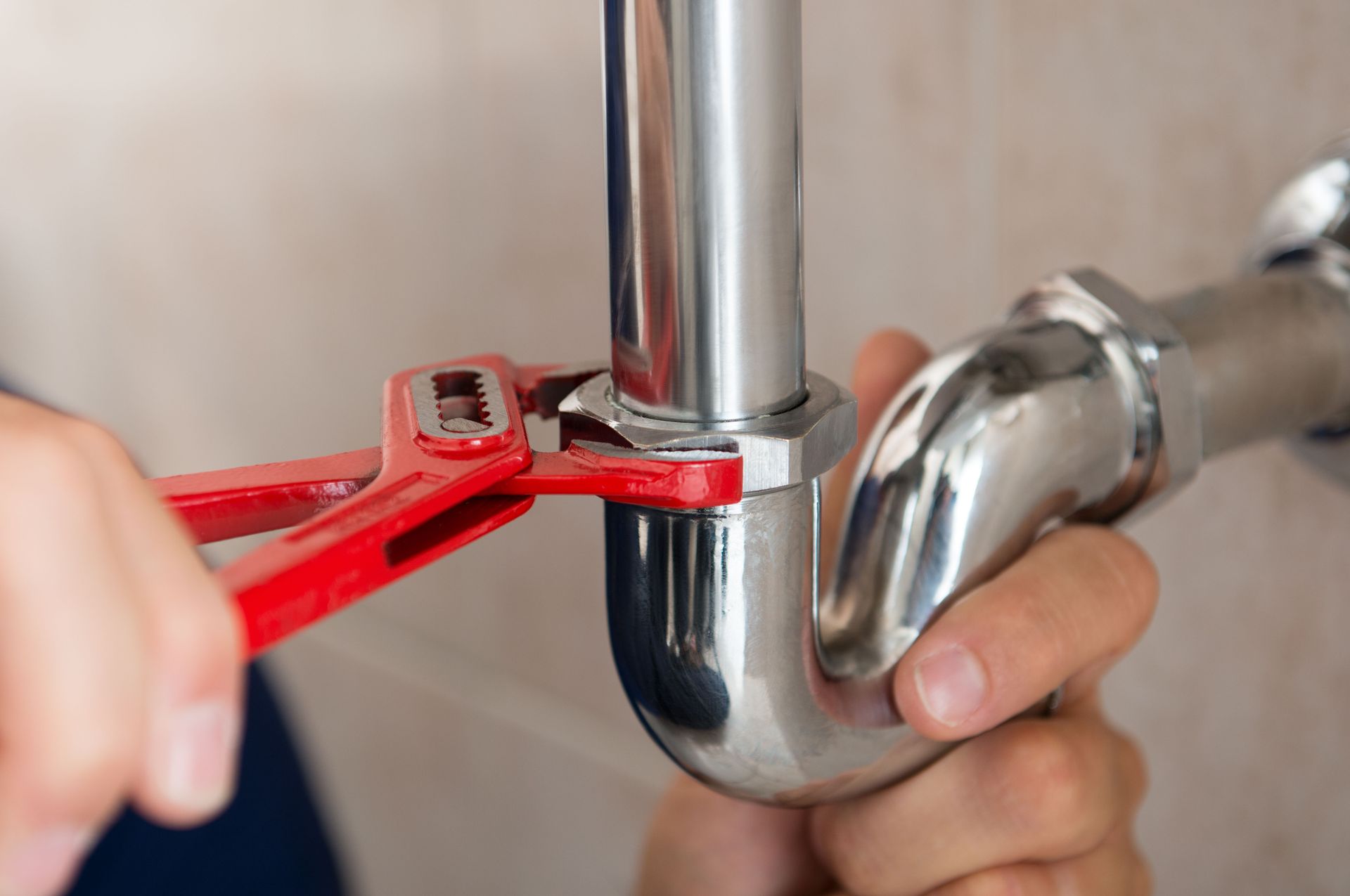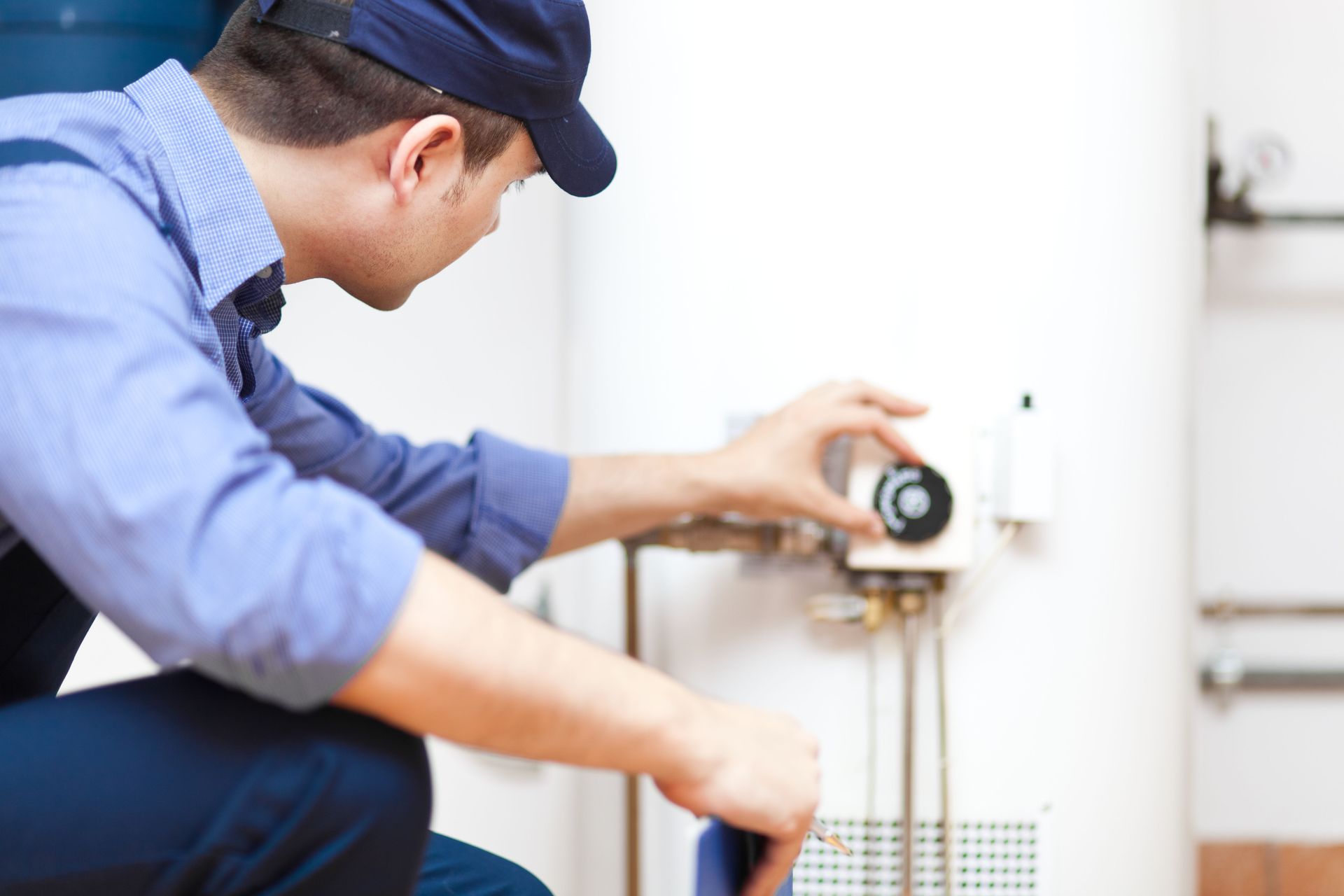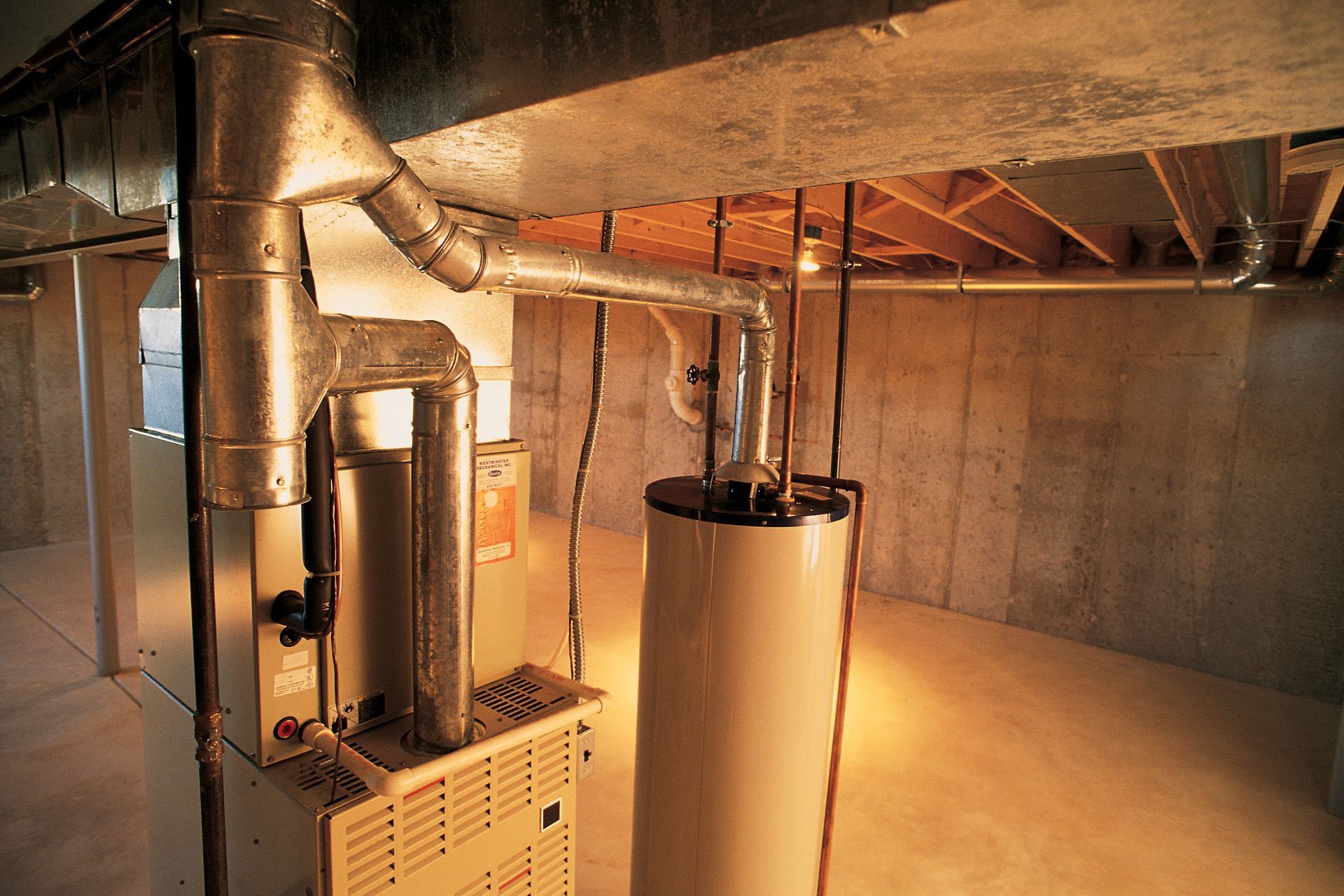By Nicole Buchanan | November 13, 2025
November 13, 2025
Detecting signs that suggest your water heater may need attention early can prevent further damage and ensure your home's comfort and safety. A well-maintained water heater is crucial for providing your household with a reliable supply of hot water, essential for daily routines like bathing, cleaning, and cooking. Understanding these signs can save you from unexpected breakdowns and expensive water heater repairs.
1. Inconsistent Water Temperature
One of the first signs your water heater might need attention is the inconsistent supply of hot water. If you notice that your hot water turns cold suddenly or fluctuates frequently, it might be a red flag. Such occurrences are often due to a failing heating element within the heater. According to This Old House, small homes with one or two bathrooms generally use 2 to 3 gallons per minute, whereas medium-sized homes typically need 4 to 6 GPM.
Addressing these issues sooner rather than later will ensure your water heater operates efficiently and reliably.
Experiencing sudden bursts of cold water in the middle of a shower or while washing dishes is another indication of a problem. This scenario is often frustrating and can be caused by several factors, including a malfunctioning thermostat or a damaged heating element. When the unit can't maintain a consistent temperature, it's likely using more energy to heat water, leading to increased utility bills and water heater repairs.
Water that never quite reaches a hot temperature can be problematic for several reasons. It might indicate issues with the heater's electrical components, such as a defective thermostat or a faulty dip tube that prevents water from reaching the necessary heating areas. Lukewarm water can also impact energy efficiency adversely since the appliance might work harder to maintain suboptimal temperatures.
2. Discolored Water
Discolored water, appearing rust-colored, brown, or yellow, is a common indicator of water heater issues. This is usually caused by corrosion and sediment buildup in the tank, which not only affects water quality but can also damage pipes and appliances. Sediment and rust particles can clog faucets and reduce the efficiency of appliances like dishwashers and washing machines. Regular water heater repairs, including 'flushing' the unit, can reduce sediment buildup and extend the lifespan of your appliance.
When your tap water has a brown or yellow hue, it's essential to troubleshoot to identify the cause. Firstly, check if the discoloration is persistent; if it only occurs when using hot water, the culprit is likely the water heater. The anode rod, responsible for preventing tank corrosion, may have reached the end of its life and require replacement. Additionally, sediment can settle at the bottom of the tank, causing this discoloration.
Concerned homeowners should consider testing their water for contaminants if they notice persistent discoloration. A simple water test can reveal sediment levels and the extent of rust presence, allowing you to gauge the severity of the issue. According to industry recommendations, periodic inspection and replacement of the anode rod can prevent these problems. In specific instances, the entire tank may need professional cleaning or a full replacement, depending on the extent of the damage and contamination.
3. Strange Noises Coming from the Heater
Strange noises emanating from your water heater, such as rumbling, are often a cause for concern. These sounds usually indicate that sediment buildup is significant enough to cause the heater to overheat, leading to noise. The accumulation of sediment at the bottom creates a layer that traps boiling water, generating the rumbling sounds. When left unaddressed, these issues compromise the efficiency and functionality of the heater. Regular cleaning and water heater repairs are necessary to prevent these sounds from transitioning into more severe mechanical problems.
Popping or crackling noises are often attributed to water trapped under sediment layers turning into steam bubbles. This phenomenon occurs as sediment accumulates, restricting the area for water to heat efficiently. These steam bubbles cause noise as they escape through layers of sediment. For homes that rely heavily on hot water, such as medium-sized homes with higher demand, addressing these issues quickly prevents further complications.
Sediment buildup in your water heater can have adverse effects on its overall efficiency and lifespan. As minerals and debris accumulate in the tank over time, they form an insulating barrier that forces the heater to work harder. This increased effort leads to higher energy consumption and could result in premature wear and tear. For homes with variable water quality, installing water softeners or filters can mitigate sediment problems significantly.
4. Leaking Water from the Heater
Visible water leaks from your heater are a clear sign that something is amiss. Leaks often manifest as small puddles near the base or noticeable drips from connections. Such leaks can stem from corroded tanks, loose connections, or even defective valves. Early detection is vital, as ignoring these leaks can lead to substantial water damage and increased repair expenses. To avoid these costs, conduct regular inspections of your water heater and its components to catch any issues before they become severe.
If you notice dampness around your unit without visible leaks, it might indicate a significant problem and the need for water heater repairs. Moisture can originate from condensation caused by poor insulation or minor leaks not immediately visible. This dampness is often a precursor to more serious issues, such as mold growth or structural damage. Homeowners should take quick action to investigate and rectify the cause of moisture accumulation around the heater.
Several factors can contribute to water heater leaks, including age-related wear, excessive pressure, and faulty fittings. As heaters age, components like the tank and valves become more susceptible to damage and corrosion. Additionally, high pressure from the water supply line can stress the tank, causing hairline cracks that lead to leaks. It's crucial to regularly check pressure relief valves and inspect for corrosion to prevent these problems.
5. Drop in Water Pressure
A noticeable drop in water pressure throughout your home can often be traced back to your water heater. This performance issue leads to slower water flow, particularly when multiple fixtures are used simultaneously. Homes relying on higher gallons per minute, like those with several bathrooms, will find these pressure drops especially disruptive. Frequently, sediment buildup can partially block water pathways, decreasing overall pressure.
Sediment and mineral deposits within your heater can impair water pressure by causing blockages. As minerals precipitate out of water over time, they can obstruct water flow routes, resulting in reduced pressure. Persistent sediment problems often necessitate a comprehensive flushing of the tank to eliminate deposits. For homes in hard water regions, installing a whole-house water softening system can alleviate mineral buildup.
Low water pressure can sometimes be associated with the water heater's malfunctioning pressure relief valve. When these valves fail to operate correctly, they can cause pressure fluctuations and reduce overall flow. It's crucial to routinely test the pressure relief valve to ensure it's functioning correctly and not releasing water unnecessarily. Homeowners dealing with these issues may require professional inspection and potential replacement of faulty valves.
Recognizing and responding to these signs of issues can prevent serious damage and prolong the life of your appliance. Regular maintenance and timely water heater repairs are key to maintaining an efficient and reliable water heating system in your home. From addressing fluctuating temperatures to resolving low water pressure, each identified sign requires proactive measures to ensure continued comfort and efficiency. Contact Service Solutions today to schedule expert water heater maintenance and ensure your home stays comfortable and worry-free.






